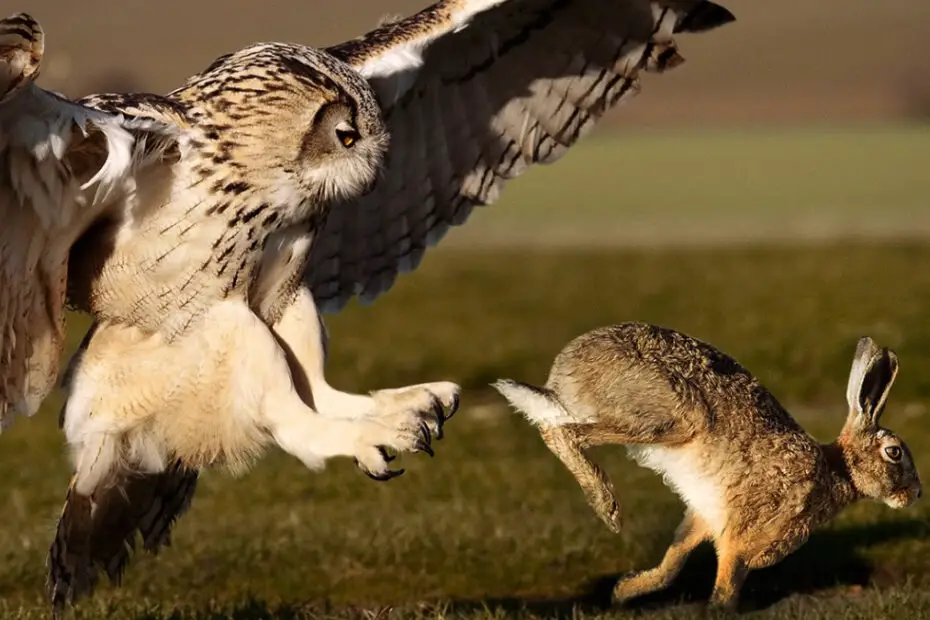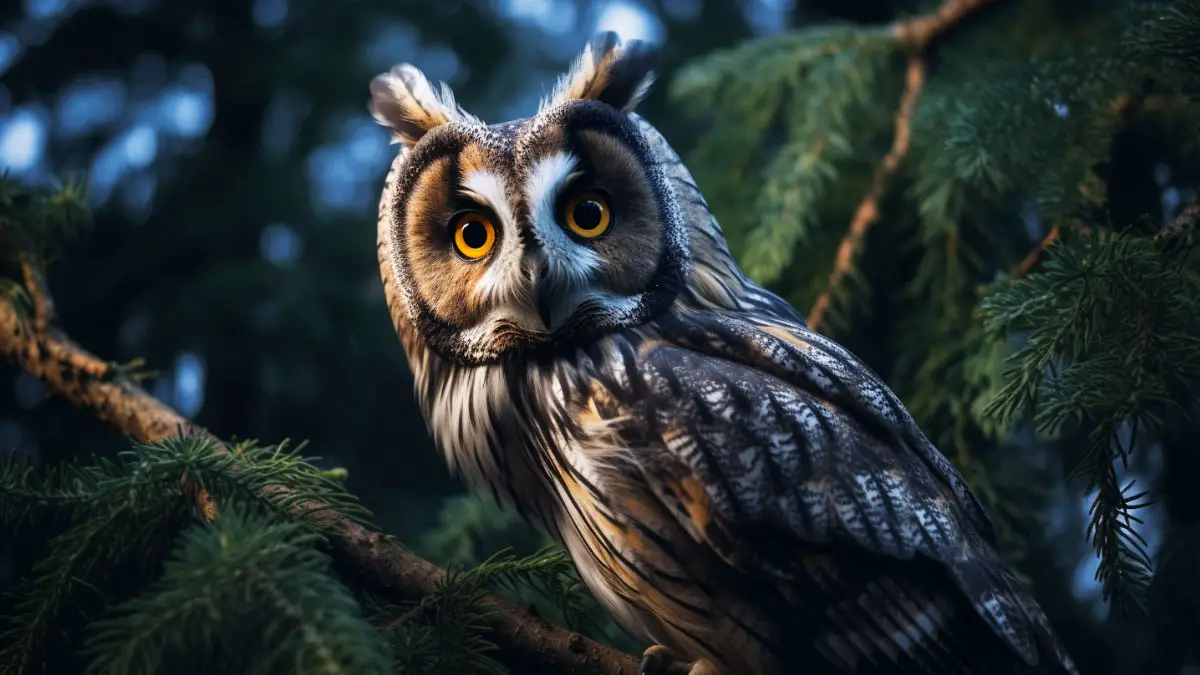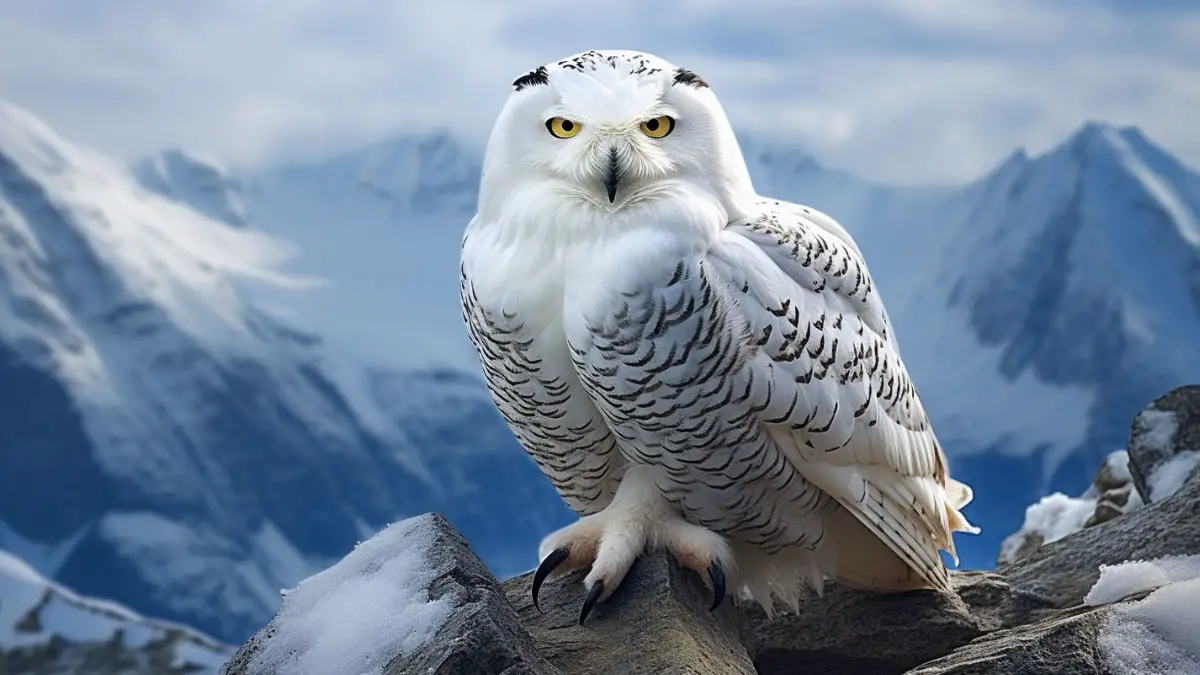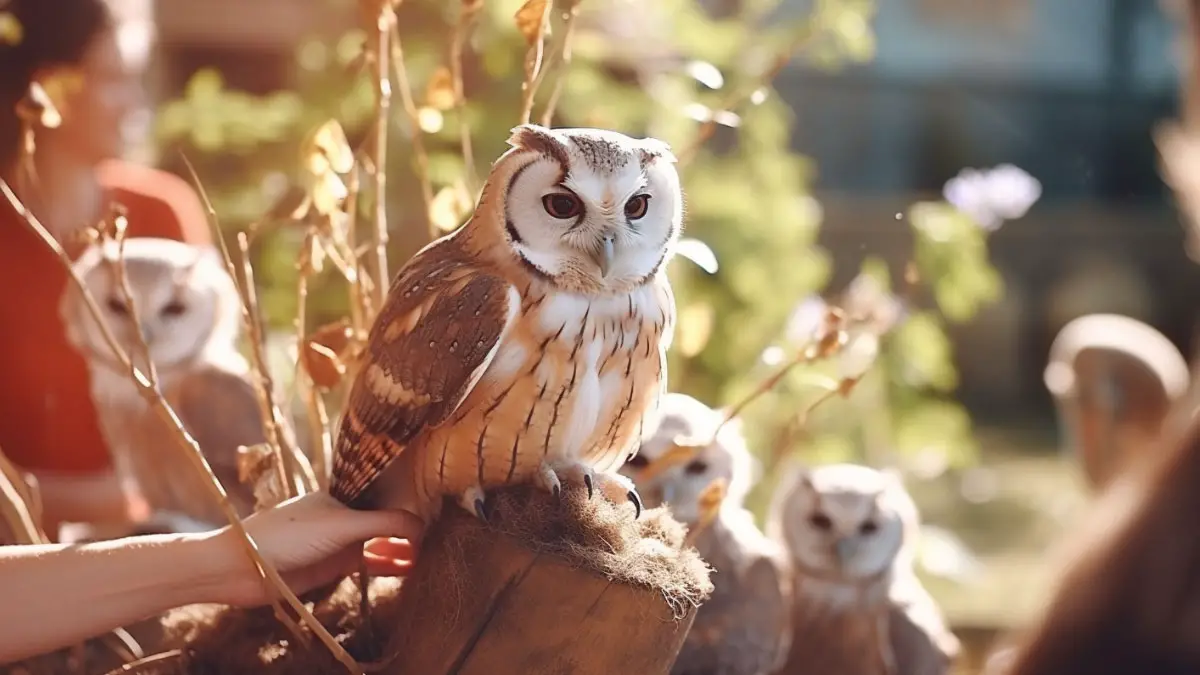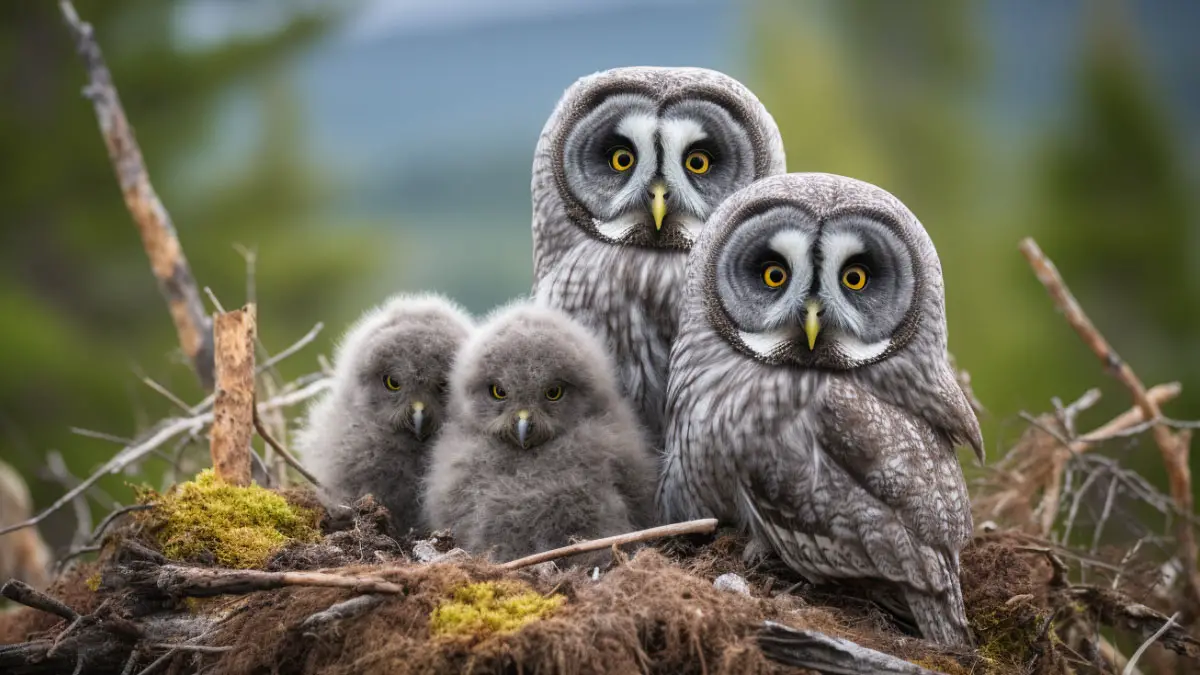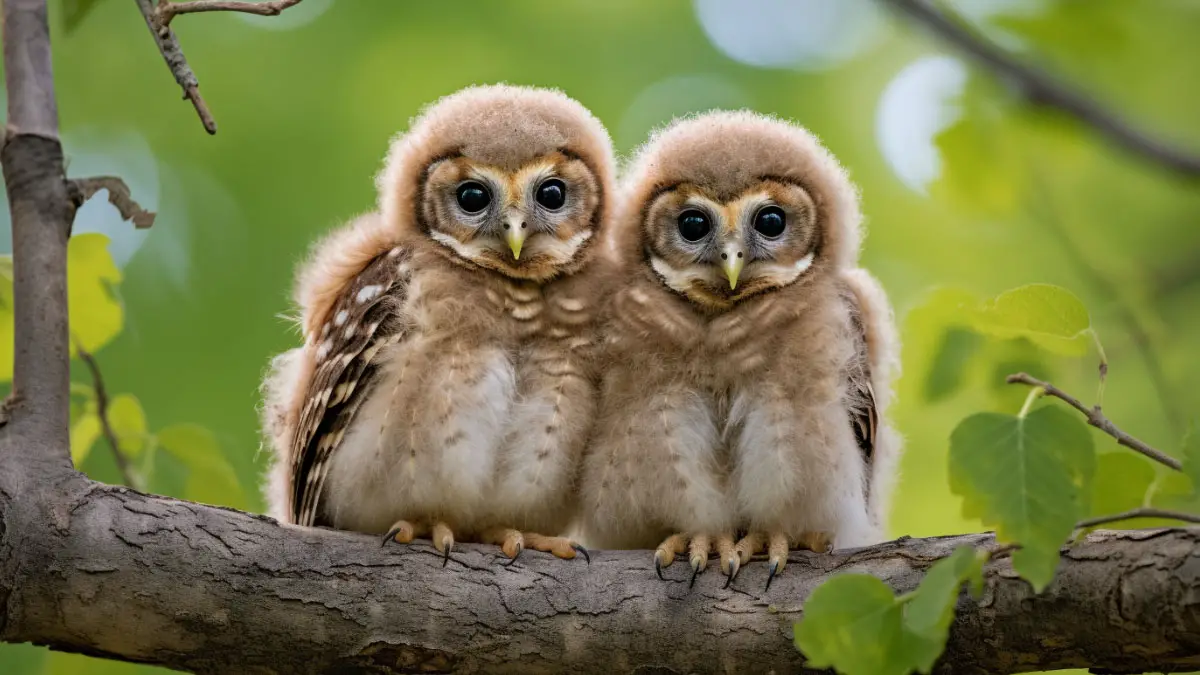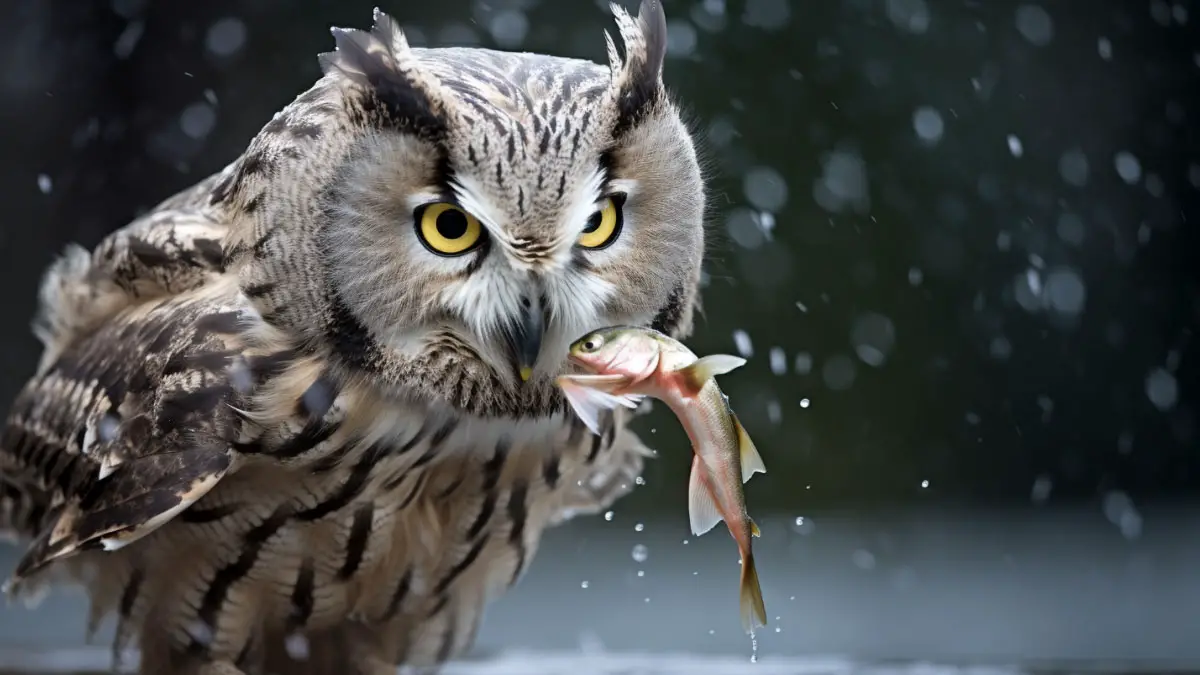With their silent flight and sharp talons, owls are fearsome predators of the night sky. And for many owl species, rabbits frequently fall prey to these avian hunters.
But do owls eat rabbits? Yes, many species of owls do eat rabbits. Owls have powerful talons that allow them to catch and kill rabbits. Larger owls can even carry off larger adult rabbits as prey, while smaller owls focus on smaller baby rabbits.
But do all owls eat rabbits as part of their diet? And if so, how do smaller owls manage to catch larger leverets and adult cottontails? Let’s uncover the mysterious relationship between these unlikely predators and prey.
Do Owls Eat Rabbits?
Yes, many species of owls regularly hunt and consume rabbits as part of their diets. Rabbits provide an important food source for owls, especially larger species like great horned owls that can kill and eat fully grown adult rabbits.
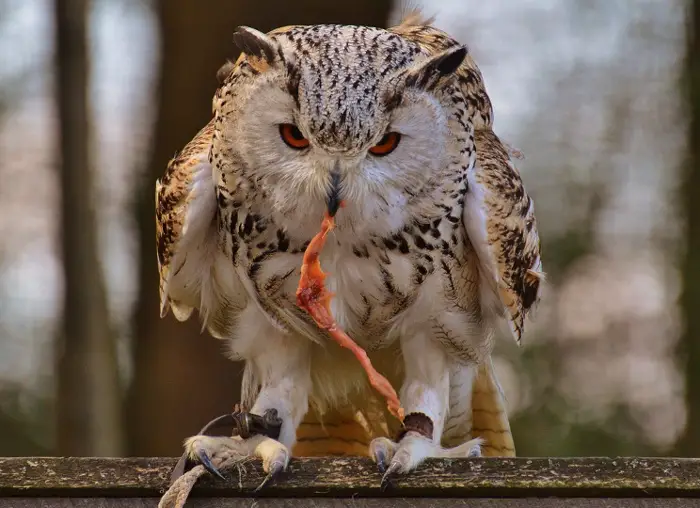
While all owl species will primarily prey on smaller mammals and birds, rabbits offer a more substantial meal with higher nutritional value.
Many owls are well-adapted for hunting rabbits, using silent flight and keen eyesight to catch fast-moving rabbits by surprise.
The predatory relationship between owls and rabbits helps balance their shared ecosystems. On the one hand, rabbits provide a source of food for owls, while owls, in turn, help control rabbit populations and prevent overgrazing of vegetation.
Do All Owls Eat Rabbits?
Not all owls eat rabbits. While most large owl species, like great horned owls, long-eared owls, and eagle owls, do regularly prey on rabbits. And many medium-sized and small owls do not eat rabbits.
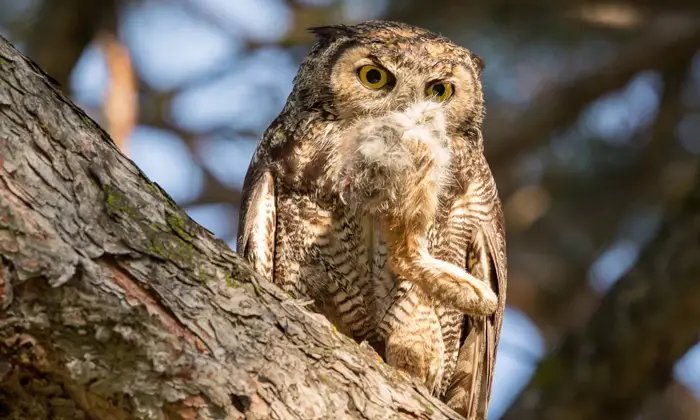
Rabbits tend to be too large for them to capture and kill, especially adult rabbits. Additionally, even if they could catch rabbits, the high energy costs may outweigh the benefits.
Factors Affecting Owls’ Prey on Rabbits
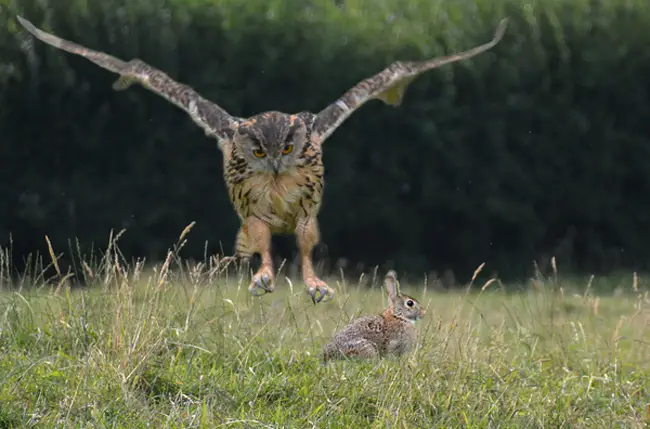
Whether an owl species preys on rabbits depends on factors like:
Body Size
- Larger owl species that can tackle fully grown adult rabbits tend to hunt and eat them more frequently compared to smaller owls.
- Owls with larger bodies, powerful talons, strength, and strike power to capture and subdue sizable prey like rabbits.
- In contrast, smaller owls, like screech owls, focus on hunting smaller prey such as rodents, birds, and insects instead of rabbits. That’s because of their relatively diminutive stature.
- Adult rabbits would likely be too large to kill and handle compared to smaller mammals and birds.
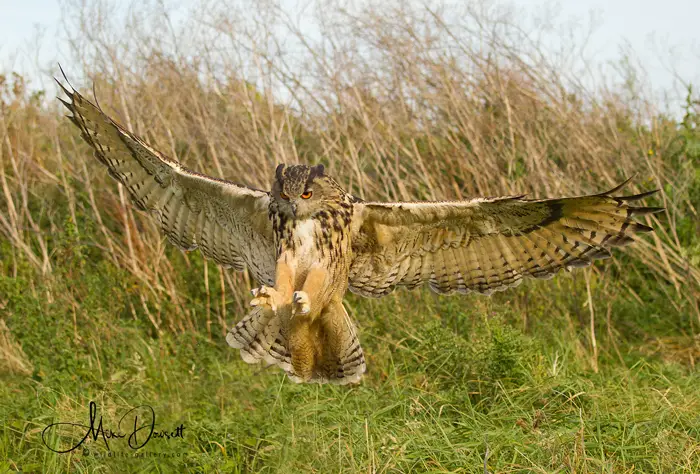
Habitat
- The density of rabbit populations in an owl’s habitat thus influences whether or not the owl species preys on rabbits regularly.
- Owls that live in habitats with an abundance of rabbits tend to incorporate them into their diet more frequently. Their plentifulness makes them an easily accessible food source for them.
- Owls inhabiting such areas have adapted to include rabbits as regular prey when optimizing their foraging strategies.
- On the other hand, owls living in habitats without many rabbits present will focus their hunting efforts on alternative locally available prey. They are less likely to target rabbits if they are scarce in the environment.
Food Preference
Some owl species have evolved to specialize in hunting particular types of preferred prey. While some may hunt anything that looks like prey, others may not regularly pursue larger prey like rabbits.
- Such dietary specialization tends to occur when owls live in habitats where specific kinds of food are readily available all year round. Over time, these owls adapted traits that enhance their ability to catch that preferred food source.
- For example, scops owls have specialized feathers and wing configurations that facilitate catching insects.
- Fish owls have feet adapted for grasping fish. They rely more on catching their preferred food. They may show little interest in hunting larger, more difficult-to-catch animals like rabbits.
How Do Owls Hunt Rabbits?
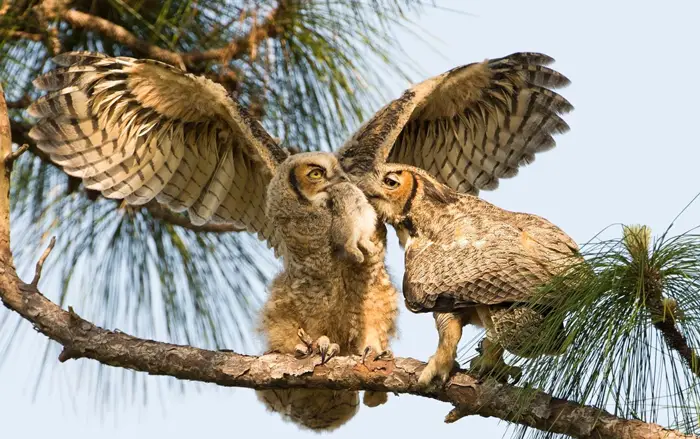
Owls are nocturnal birds of prey with powerful talons and a silent flying style, allowing them to catch their prey by surprise. Rabbits are common prey for many owl species due to their abundance and small size.
- When hunting rabbits, owls typically use an ambush strategy. They will perch quietly on a tree branch near areas where rabbits feed or rest. Once a rabbit comes within range, the owl will silently take flight and swoop down on it from above using the element of surprise.
- The owl’s sharp talons grasp the rabbit and pin it to the ground. Owls have strong talons that can crush the bones of their prey or inflict fatal injuries.
- Some owls will carry away larger rabbits to feed on later, while smaller owls simply feed on the spot. Either way, the owl’s hooked beak is used to tear off chunks of flesh or to kill the rabbit quickly.
- Some owls also employ more active hunting strategies to catch rabbits. For example, barn owls have been observed running rapidly along the ground to chase down and catch fleeing rabbits.
Are Domestic Rabbits Safe From Owls?
Unfortunately, domestic rabbits are not necessarily safe from owl predation. The size of the domestic rabbit does play an important role in this case. Larger rabbit breeds weighing over 10 pounds are generally too big for most owls to carry off and kill successfully.
However, smaller and medium-sized domestic rabbits from 4 to 8 pounds are within the weight range that owls can easily prey upon. This includes popular breeds like the Netherland Dwarf, Mini Lop, and Dutch.
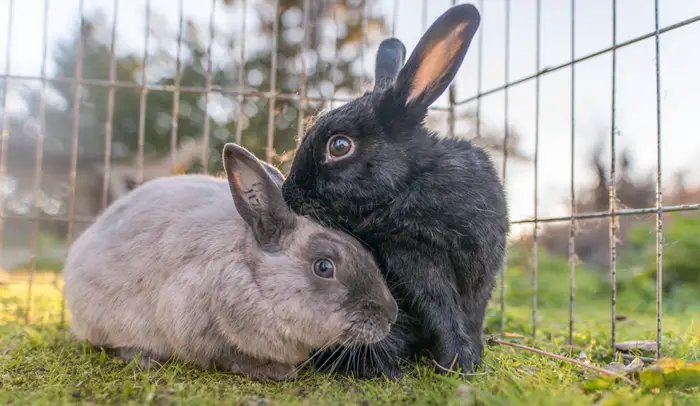
Even if an owl cannot kill an adult domestic rabbit, it may still be able to take younger rabbit kits that have not fully grown. Many domestic rabbits are bred for meat, fur, or as pets and often produce large litters, with many young kits susceptible to owl predation.
Therefore, from a health and dietary standpoint, domestic rabbits cannot be considered completely safe from opportunistic owl attacks, especially smaller breeds and younger rabbit kits.
FAQs
Here are some key questions to answer your curiosity about owls preying on rabbits:
The maximum weight of rabbits that owls can successfully catch and carry away depends on the size and species of owl. Larger owls, such as eagles and great horned owls, can carry away rabbits weighing up to 4 to 5 pounds.
In contrast, smaller owls like screech and burrowing owls often prey on cottontail rabbits and hares weighing 2 to 3 pounds.
No, owls do not only eat the heads of rabbits. While they usually kill rabbits by biting the head or neck, owls consume other parts of rabbits’ bodies along with the head.
Conclusion
Owls are apex predators that regularly hunt and consume rabbits as part of their diet. Whether or not they include rabbits in their diet depends on factors like habitat, body size, and food preference. Generally, larger species like great horned owls and eagle owls are capable of preying on fully grown adult rabbits.
In comparison, smaller species like screech and burrowing owls specialize in hunting smaller super or cottontail rabbits. While domestic rabbits are relatively safe from owl predation, smaller rabbit breeds and younger rabbit kits are often vulnerable to opportunistic owl attacks.
